As modern society becomes more superficial and technologically driven, one realizes that the poetry of everyday life is far more interesting. As a college student, now’s the time to examine the complicated truths of the self, identity, beauty and other large concepts that seem overlooked. Check out the top colleges for you to continue thinking in a philosophical light based on unique philosophical courses offered, pop culture references, publications, extracurriculars and special opportunities.
Keep reading to uncover these perfect schools for your classic neighborhood thinker:
10. Bowdoin College
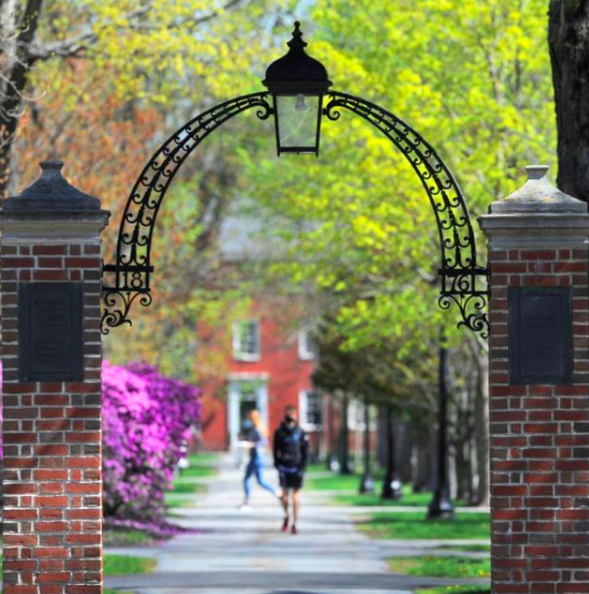
If Bowdoin College’s website slogan “Bowdoin is a college and also an idea—” doesn’t scream philosophical thought, then I don’t know what does. As a rigorously academic college, Bowdoin exceeds the boundaries of a regular liberal arts education to bring excellence into the world. Their philosophy department aims to answer fundamental questions about our place in the world and relations with one another.
Moving beyond the introductory classes like “Ancient Philosophy,” Bowdoin offers courses such as “Utopias and Dystopias” and “Latin American Philosophy.” Whether you find yourself interested in examining notions of privilege in one society or analyzing thought based around colonization, decolonization and liberation in Latin American, these classes really go above and beyond. If discussions focused on issues surrounding immigration, racial and ethnic identity and the Spanish language interest you, their course catalog will appeal to you.
You’ll find the opportunity to strengthen your writing skills through the peer-based writing project, as well as the option to pursue an independent study or honors project to delve into a topic of your choosing. Past projects include “Damned if You Do, Damned if You Don’t: A Logical Analysis of Moral Dilemmas” by Samuel Monkman ’18 and “Selecting Against Gender: Sex Selection, Reproductive Technology and the Question of Moral Permissibility” by Georgina Campelia ’07. With great thinking and persuasive writing skills, Bowdoin alumni not only pursue graduate work in philosophy but go into the law field. Take a chance at Bowdoin and contribute some of your ideas while you’re at it.
9. Dartmouth College
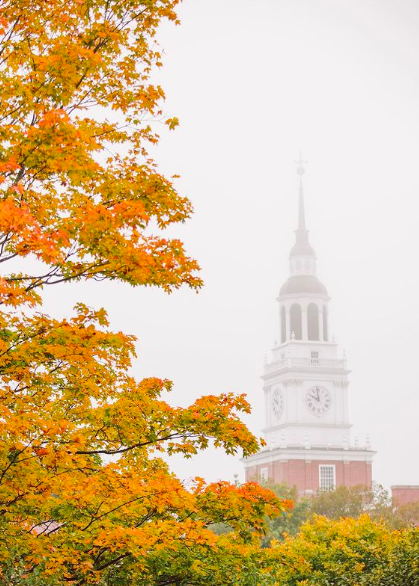
Looking for a philosophy path that ties into social justice issues of today while being one of the most historic Ivy leagues of today? Dartmouth college in snowy New Hampshire might be the school for you.
You might remember Dartmouth as Dan Humphrey’s top choice in the hit series Gossip Girl, but the school offers a whole lot beyond what this fictional TV show portrayed. With an option to customize your philosophy major, you can also complete an honors thesis for more intensive and individualized work. Past theses explored philosophy in unique mediums, including video games and art.
The university’s course offerings include opportunities to analyze the link between creative freedom and imagination in a course called “Imagination,” or the interplay between the artist and the audience in “Art and Its Nature.” Also, students may participate in their foreign study program at the University of Edinburgh and win student philosophy prizes. Enriching workshops in areas such as artificial intelligence and constitutional law can also help support your studies. You can apply for grants for social justice research in areas relating to class, race and as Dartmouth actively tries to create an inclusive space. Dartmouth provides an expansive space for you to come and add your own perspectives to your study.
8. Bennington College
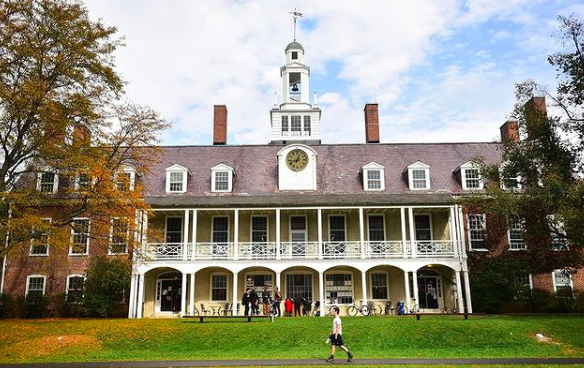
Hidden in the green mountains of Vermont, Bennington College houses some of the most innovative visual arts, creative writing and music programs. However, you can add philosophy to your plan within the Society, Culture & Thought program at Bennington.
“I suppose that many classes at Bennington involve philosophy, which makes the entirety of studying there all the more interesting since you know each class is going to push you to think deeper and more existentially,” Bennington Senior Vivian Shamma said.
With small, discussion-driven classes, you’ll discuss ethics and Kant in a cozy New England setting. Dark academics might recognize it as the basis of Camden College in Donna Tartt’s The Secret History. While the classics are no longer an option at this school, philosophy is limitless.
From a wide range of classes with permanent and guest faculty, you can choose from courses such as “Philosopher Queens” to “Thinking Like A Greek.” Bennington offers a colloquium series to engage with acclaimed lecturers on social questions and contemporary problems. “The Beyond the Binaries” lecture series explored gender dynamics with talks from award-winning scholar Susan Stryker and Professor of Sexuality, Women’s and Gender Studies, Sahar Sadjadi.
Field Work Term offers an opportunity to bring theoretical knowledge into the real world with hands-on internships and experiences such as a research assistantship or editing at a printing press. At Bennington, you will not only think like a stoic but act like one, too.
7. Vassar College
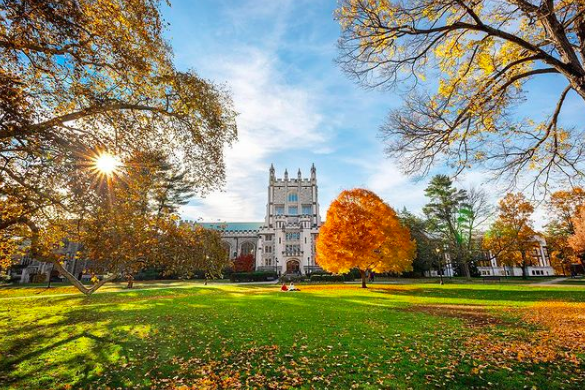
As a pioneer for women’s and liberal arts education, Vassar pushes its students to explore the world around them, just as a real philosopher would. Remember in Salinger’s Franny and Zooey when Franny swore she saw “two absolutely Vassar types” on her train ride? If an innovative education appeals to you, why not become one?
Philosophy makes up an essential part of understanding our actions and claims to knowledge. At Vassar, one can inquire into these problems with a diverse and interesting course load. Explore the controversies and categorizations of mental illnesses while conducting independent research in “Philosophy of Mental Illness” or create a 10-minute investigative podcast in “Ideas, Sound, and Story: Podcast” after diving into the groundworks of the history of Western philosophy until the 18th century. After touching up on your Plato and Aristotle, broaden your reading and perspectives with “Latin American Philosophy,” “Latin Neo-Confucianism” or “Chinese Buddhism.” Choosing a correlate allows you to analyze other subfields in philosophy such as gender or ethics.
The philosophy department runs The Vassar College Journal of Philosophy, providing a space for students to showcase relevant discussions from their contemporaries. “Haunting Legacies: Photography and the Invisible” marks the first art exhibition of any philosophical program in the country and aims to illustrate what remains invisible within photography. You’ll also get to study abroad with exchange programs in Berlin, Bologna, Paris, London and beyond to delve into specific schools of thought. All your time spent thinking will be worth it.
6. Cornell University

Yes, Andy Bernard from The Office brags about attending Cornell in New York, but that shouldn’t stop you from enrolling too. Cornell’s Sage School of Philosophy offers the perfect place to thrive as a philosophy student in deep thought.
After the usual introductory courses, you’ll move onto specialized topics like female agency within society in “Female Acts: From Antiquity to Jelinek”, to Jewish philosophy in “Moses to Modernity” and moral ecology issues in “Ethics and the Environment.” You can even choose to minor in Law & Society if law school interests you to equip you with a law background as well.
With three distinguished journals, you’ll gain experience editing and working with international philosophers at The Philosophical Review, Medieval Philosophy & Theology for medieval topics or the strictly undergrad journal Logos: The Undergraduate Journal of Philosophy at Cornell.
“I chose to study at the Sage School because of the lecture style: students are always encouraged to participate, discuss, and defend their own opinions on the philosophical questions at hand,” Logos Editor-in-Chief Bertrand Li said. “This tradition of fostering philosophical discourse—not just memorization and regurgitation—is a tradition proudly continued by Logos, which not only serves as an editorial board for undergraduate paper submissions from around the world but also brings together philosophy majors and enthusiasts alike on campus.”
Extracurriculars offered at Cornell include the Logos philosophy club, the Minorities in Philosophy Reading Group and hanging out in the dedicated study room of the Olin Library with an abundance of books and periodicals to peruse. You can be an exchange scholar at American institutions such as Brown or the University of California at Berkeley or study abroad at King’s College in London. Assisting faculty on research projects creates a step towards pursuing your own career.
5. New York University

New York, otherwise known as the place for artists and musicians…but how about philosophers? Not only known for appearing on Gossip Girl, New York University houses a wonderful and renowned philosophy department. Analyzing ancient and modern texts, you’ll be able to take classes like “Creating a Good Society: Greek, Christian, and Jewish Perspectives” or “Philosophy of Mind” or “Language, Logic, Epistemology and Ancient Greek and Roman Philosophy.”
Through the department, you’ll find publishing opportunities with other undergraduate journals such as The University of Michigan’s Undergraduate Journal of Anthropology and post job searches for the NYU network to view following graduation.
“Studying philosophy at NYU presents an opportunity to join a vibrant philosophical community alongside an unmatched faculty, all of whom are among the leading figures in their fields of inquiry,” NYU Junior Paul Jin said. “I am thrilled to be part of the NYU philosophy community, which organizes The Annual Undergraduate Philosophy Conference, The NEO Journal, the Big Questions high school outreach program, and a multitude of events for discourse and community engagement.”
The Global Pathways program lets you continue your philosophical studies at NYU London and Paris. London offers courses such as “Central Problems of Philosophy and Ethics” and excursions to quaint towns like Bath and Brighton Beach. You’ll get to immerse yourself in football games at Wembley Stadium and West End theatre productions. If Sartre and Beauvoir interest you, French and Political Philosophy in Paris will let you complete your readings in style—in a black turtleneck, of course—outside of Parisian cafés. For additional reading in your spare time, NYU has over 10 reading groups dedicated to topics such as AI, imagination and amour-propre. Does discussing Rousseau in cafés in the Village appeal to you? If so, New York City awaits the inner philosopher in you.
4. Brown University
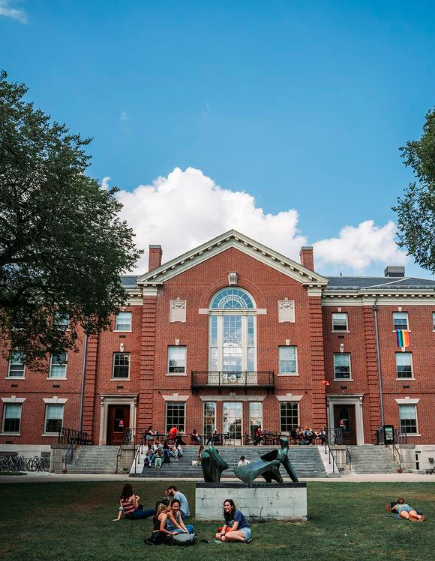
In Eugenides’ The Marriage Plot, the characters studied theology and literature, but the description of the idyllic campus, with its rolling hills, creates a rightfully compelling setting for any modern thinker. Brown University strengthens your philosophical interests through specialization as well as offering a wide liberal education. Whether interested in epistemology and metaphysics or feminist, religious or literary aspects of philosophy, Brown’s curriculum allows you to curate specializations in your education.
Intertwine your course load with physics, psychology, gender studies, education and other interdisciplinary classes. Classes like “Fiction as a Vehicle for Considering Ethical Issues in Education,” “The Place of Persons” and “Philosophy of the Environment: Environmental Utopias” offer great picks as classes that stray away from the generic philosophy class.
Outside of the classroom, Brown houses the undergraduate journal A Priori, which is open to Brown students and other colleges alike. The Political Philosophy Workshop allows critical discussion of works in progress to those studying political science or philosophy. The Summer Immersion Program creates a space for underrepresented voices to participate in educational and social activities relating to their field. Come to Brown and contribute to making philosophy more accessible.
3. Bard College
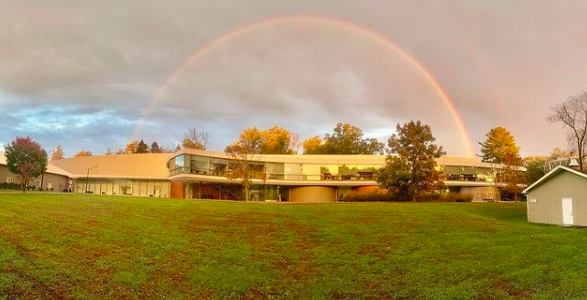
You may know this school from Baumbach’s The Meyerowitz Stories. Branded as a place to think, New York’s Bard College offers a scenic place to also grow as a liberal arts student. Each student must undergo the intensive language and thinking program to develop critical thinking and writing skills. Through filmmaking projects and free writes, you’ll bond with your fellow classmates while working intensely with the subject matter. Philosophy students in their third year take a required research seminar to cohesively gather data and write an article to present alongside a discussion and debate. Feel up for doing serious research to be submitted to undergraduate journals and conferences?
If so, the rewards prove abundant and the classes, more than satisfying. With course titles like “Politics and the Arts: Art, Politics, and Democratic Culture,” “Multicultural Perspectives” and “Self-Knowledge and Self-Discovery,” your four years will be academically and socially stimulating. Your senior project conference will be the judge of that. Recent projects include: “A Body of Evidence: Exploring the Philosophical Landscape of Modern Dance,” “Found Object Art” and “Poetic Justice: The Language of Law” for a multidisciplinary approach.
“I learn how to think deeply about philosophers’ perceptions of the world and compare their perceptions with mine,” Bard College Junior Aislinn Feldberg said.
Bard offers exchange programs in Berlin, St. Petersburg and other international cities for a chance to bring your thoughts abroad. The Philosophy Speaker Series also brings worldly lectures straight to campus. Maybe you’ll gain more self-awareness as well as a stance on Hegel’s Phenomenology of Spirit.
2. Stanford University
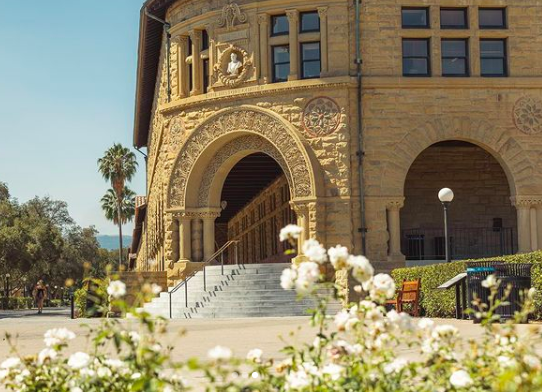
From High School Musical 3 to The Social Network, Stanford University is a common name within pop culture, and for a good reason. Located in sunny California, the lack of snow and ivy-covered buildings may seem like an odd place to study philosophy. Yet its notable philosophical department brings together intellectuals from around the globe to investigate these challenging concepts.
Alongside the usual requirements, you can choose a concentration of history and philosophy of science to explore subjects like biology, chemistry and physics or philosophy and literature if you consider yourself a passionate reader. Dual degrees in religious studies sounds like a fascinating track as well if theology and religious philosophy interests you.
Philosophy plays a huge part of Stanford’s campus through the radio show Philosophy Talk and a Kant Lecture Series. Stanford holds a Minorities in Philosophy chapter and various workshops including Logic Lovers, Political Theory and Cognition and Language for a vibrant hands-on experience rather than staring at a book by yourself.
Alumni went off to publish incredible works, such as Susan Levin’s Posthuman Bliss? The Failed Promise of Transhumanism, and found employment as professors at other higher institutions like the University of Texas Arlington. Perhaps you’ll add your name to the list one day.
1. Yale University
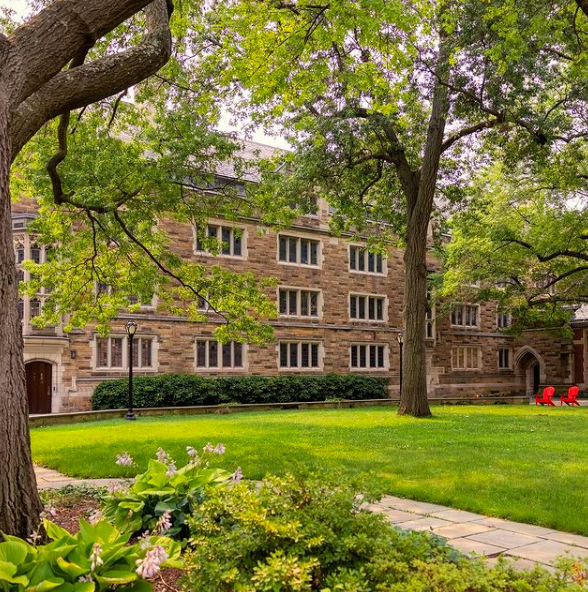
In Sofia Coppola’s Lost in Translation, Charlotte, the protagonist, recently graduated Yale’s philosophy department. With or without a shoegaze soundtrack, Yale’s prestigious program gives you a great foundation to guide you throughout life. With an option for a standard or psychology track, Yale offers a wide range of courses taught by faculty affiliated with the Law School, Divinity School and other fields of study for interdisciplinary perspectives.
Courses like “Aesthetics of Existence” and “Life as a Work of Art?” will have you analyzing fundamental principles and the nature of things in a refreshing light. Weekly Colloquium Series provide glimpses into current schools of thought and modern issues. Events include screenings of films like Iris and pizza parties for female students. Past lecturers include Helen Curry on “Endangered Genes and the International Seed Bank: Conserving Crop Diversity after the Green Revolution” and Benjamin Siegal’s “Markets of Pain: Poppy Politics and the Global Origins of the American Opioid Crisis.” Guest speakers also make up an essential part of the student workshop groups. From Society for Early Modern Philosophy to Moral Philosophy, discussing texts with peers becomes a fun activity as you debate and delve more into the topics your peers also share an interest in.
Yale’s Minorities and Philosophy working group works towards eliminating boundaries and access to higher education. Focusing on minority issues within the profession and theoretical issues, the group hosts lectures and readings based around minority perspectives. In a world like today, Yale works to actively brings these voices into the limelight. Topics range from “Oppressive Categories” to “Who Can Be a Victim of Hate Speech?” Connecting ancient texts with contemporary theorists will sharpen your thinking for sure at a school as prestigious as Yale.



















